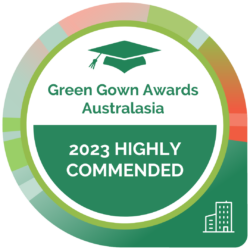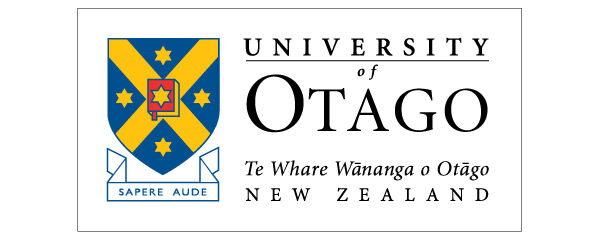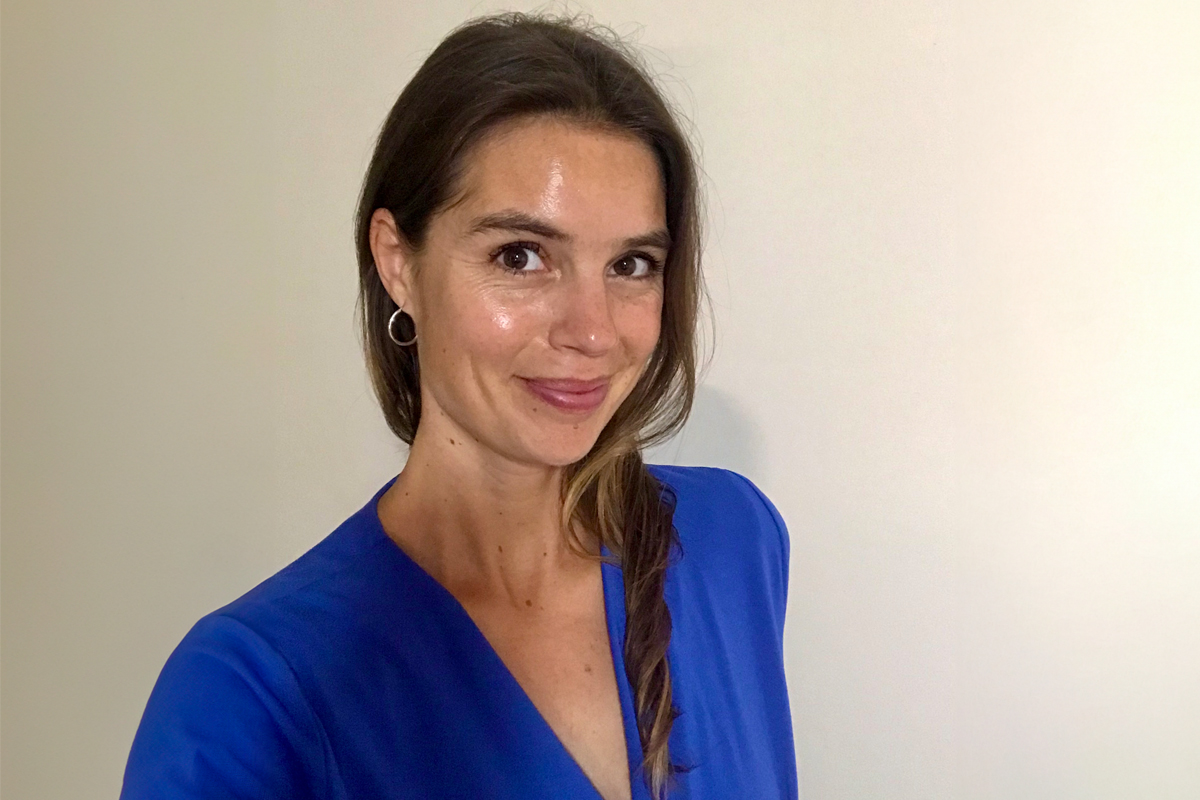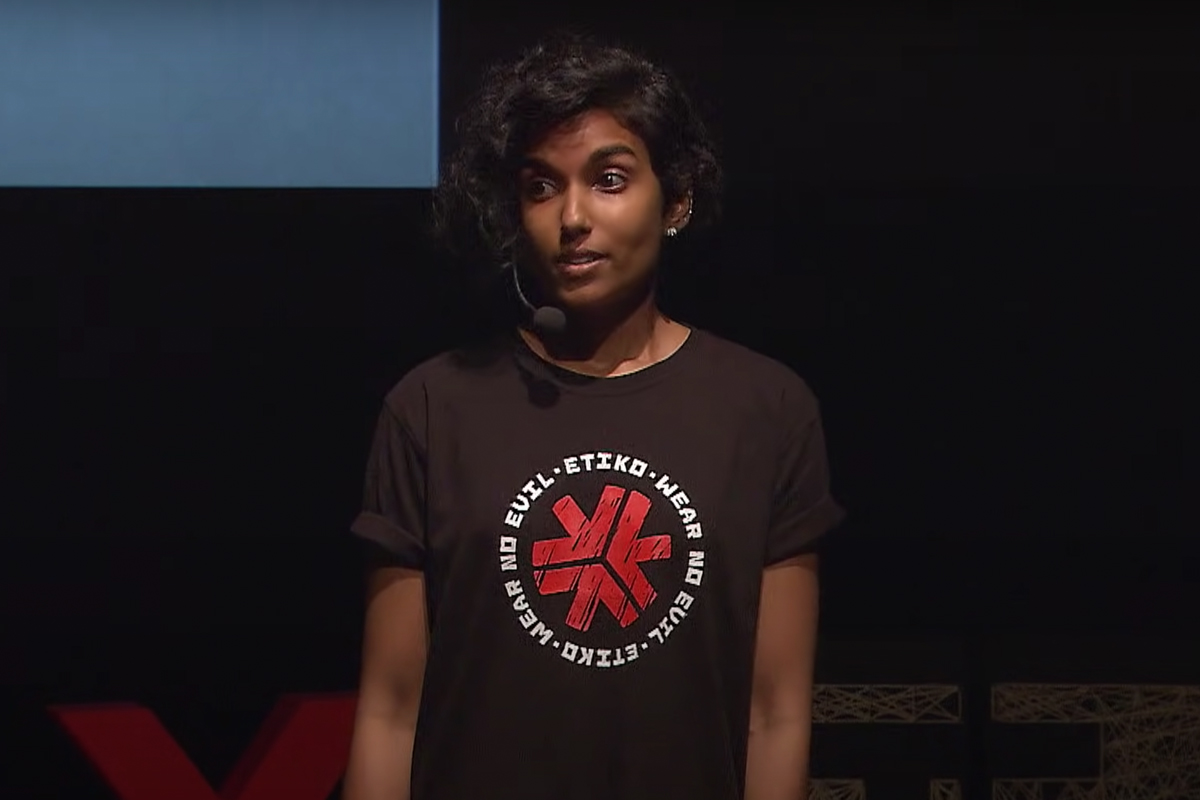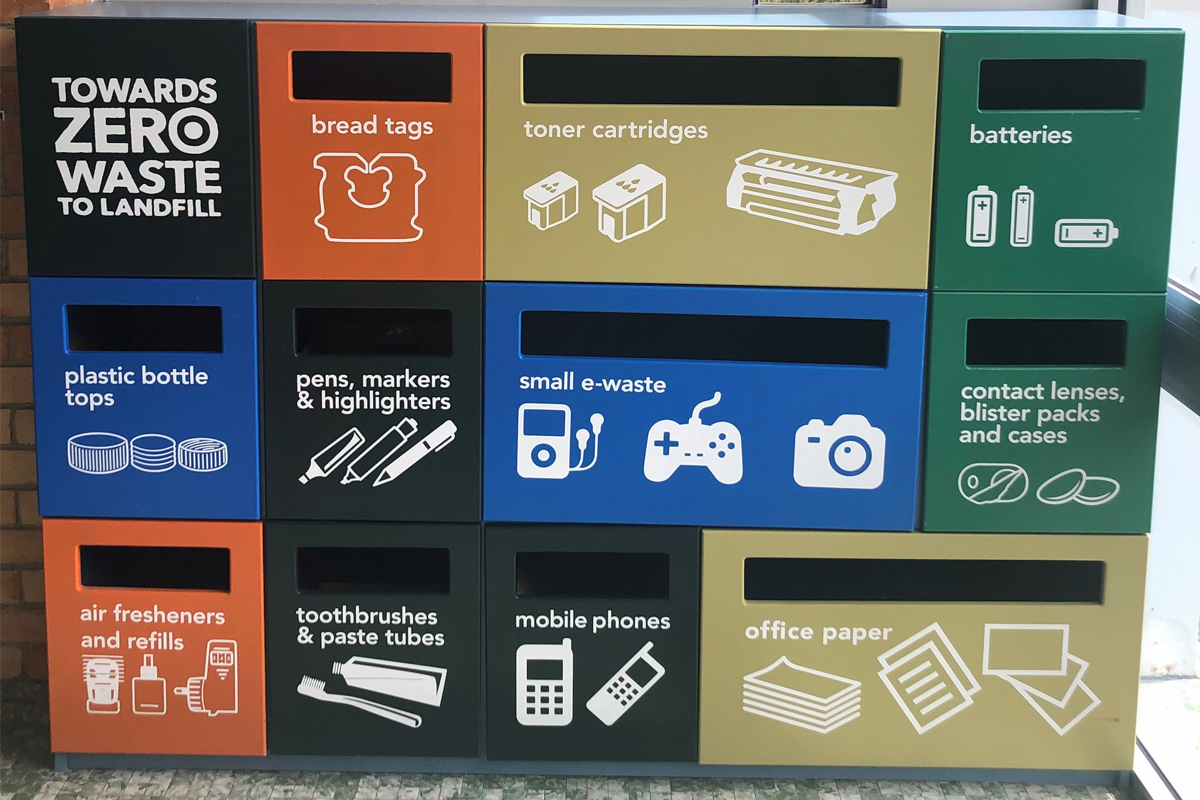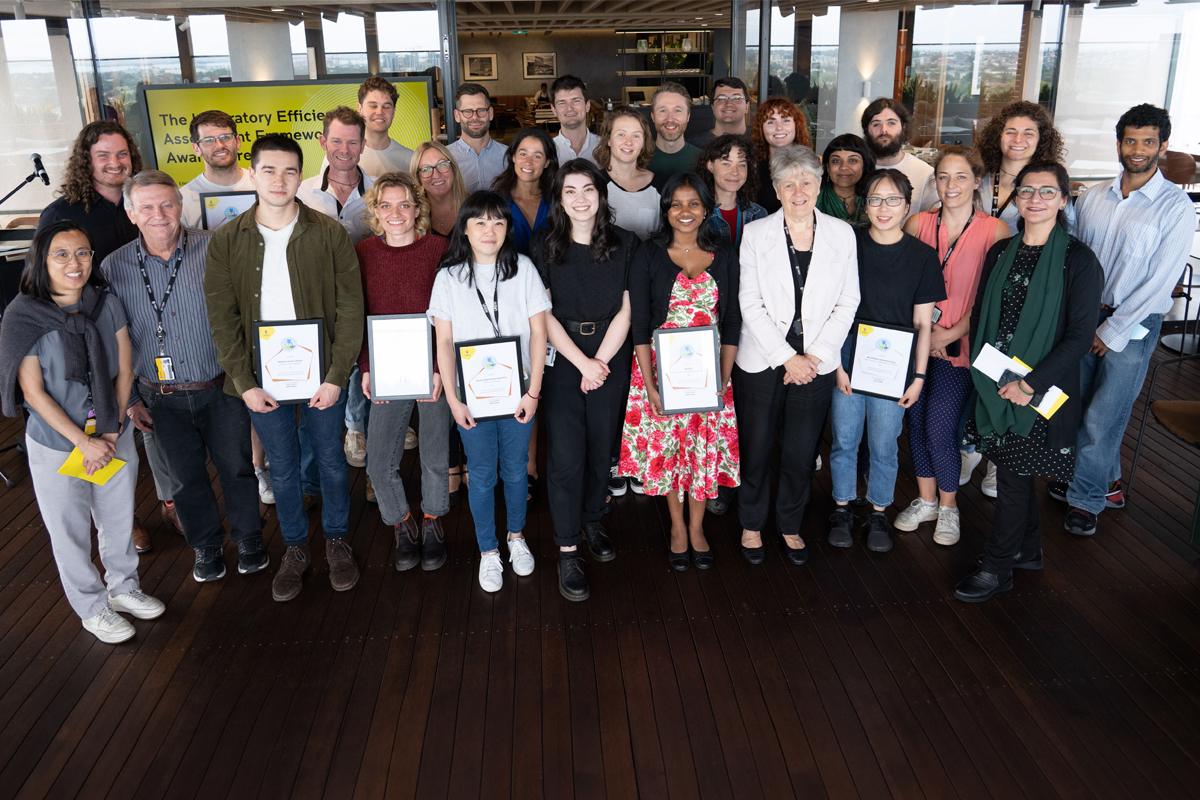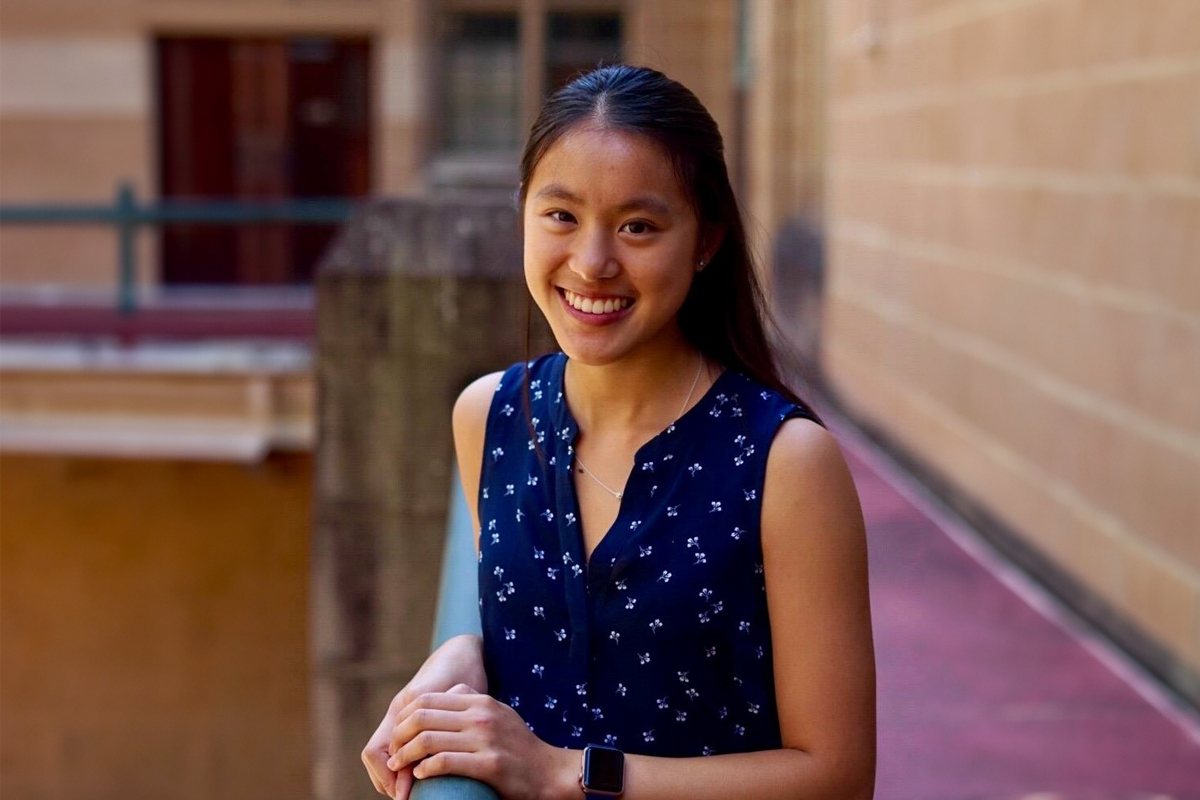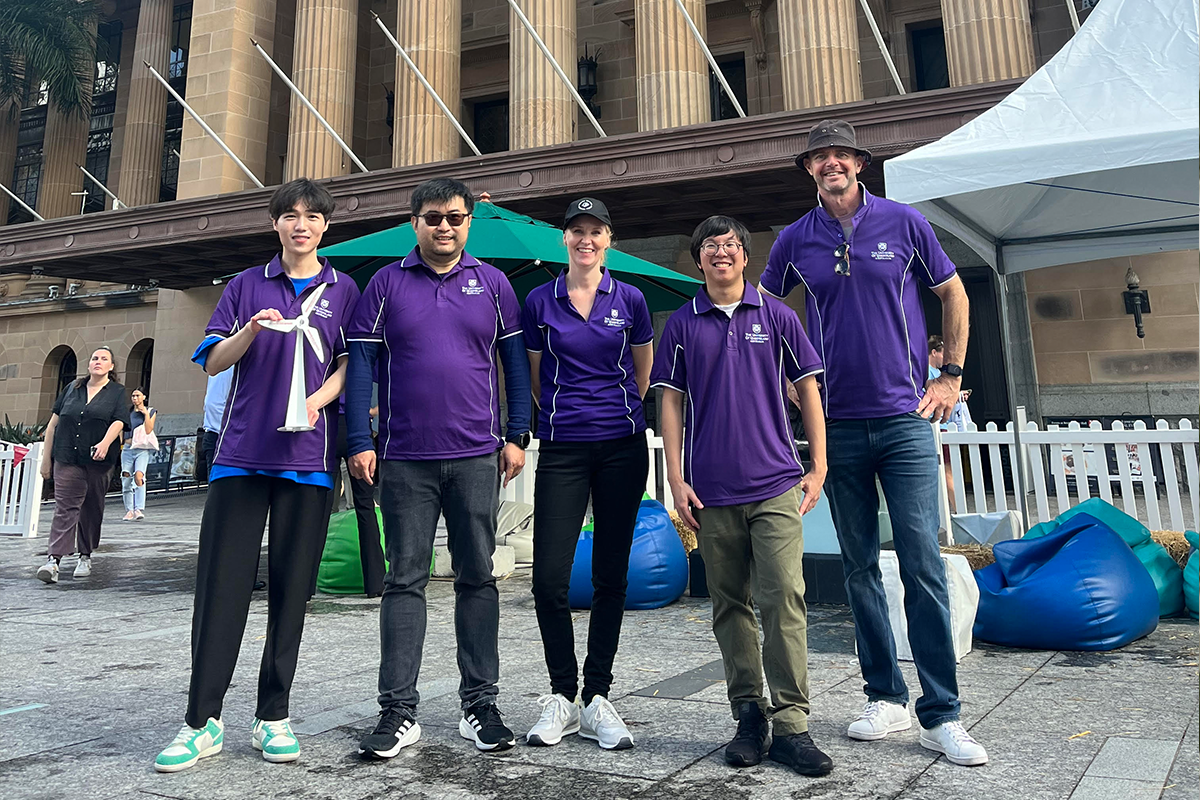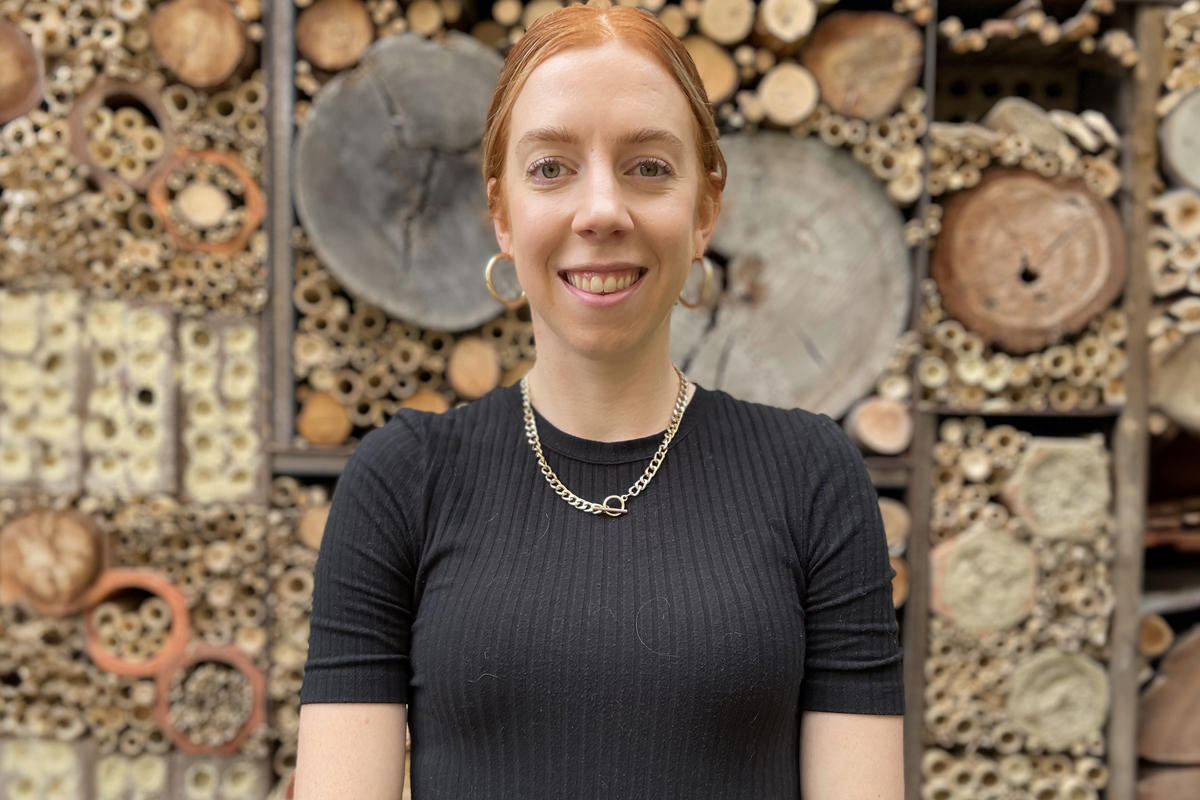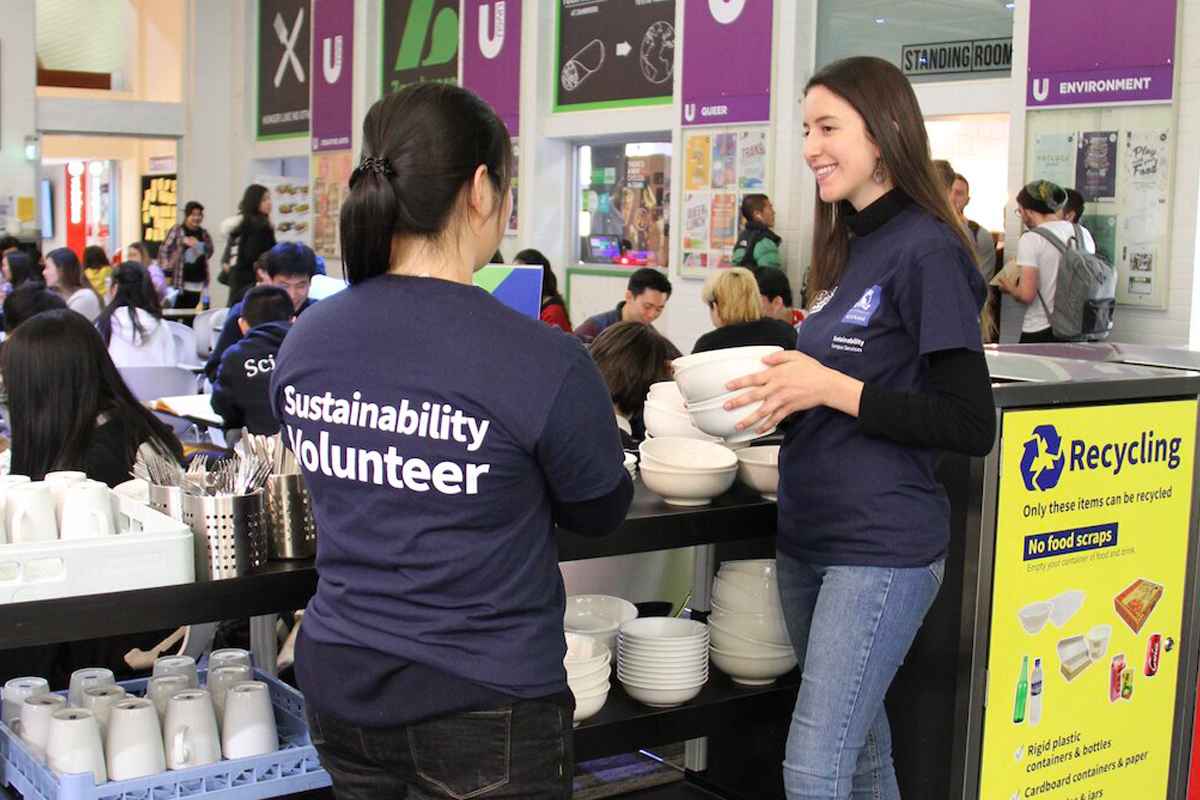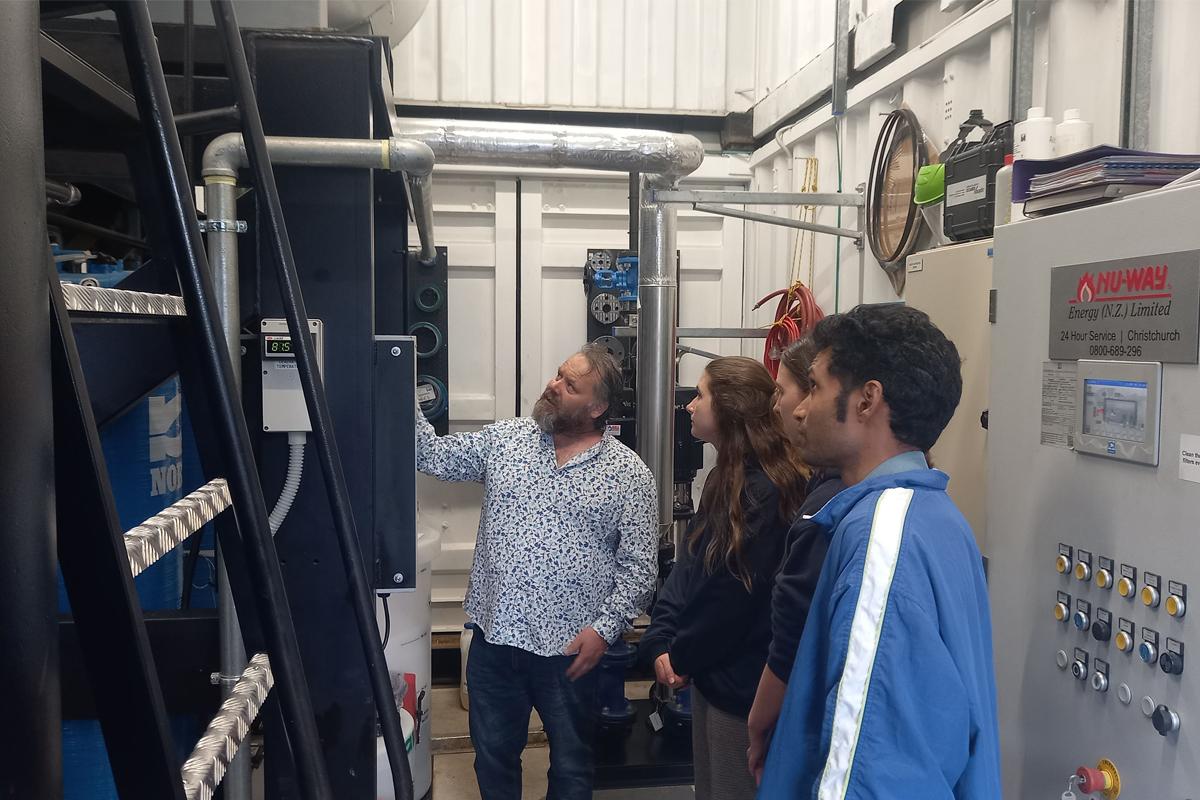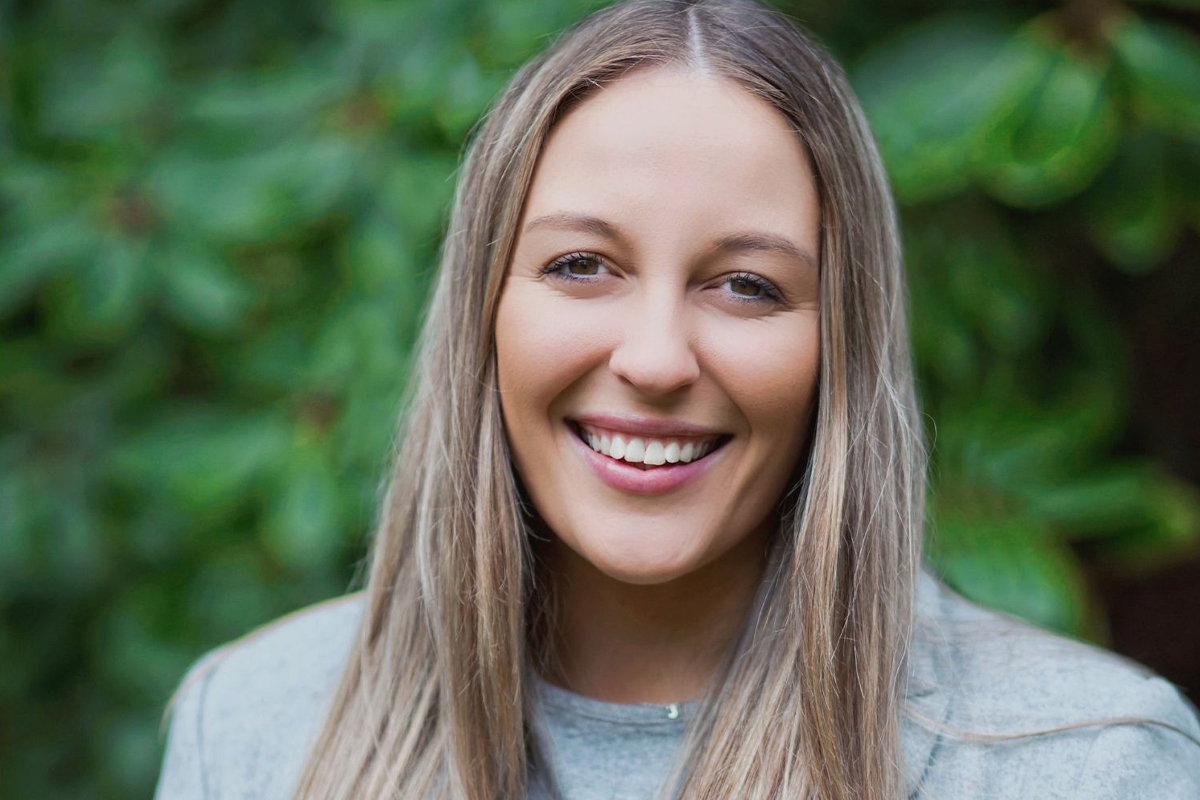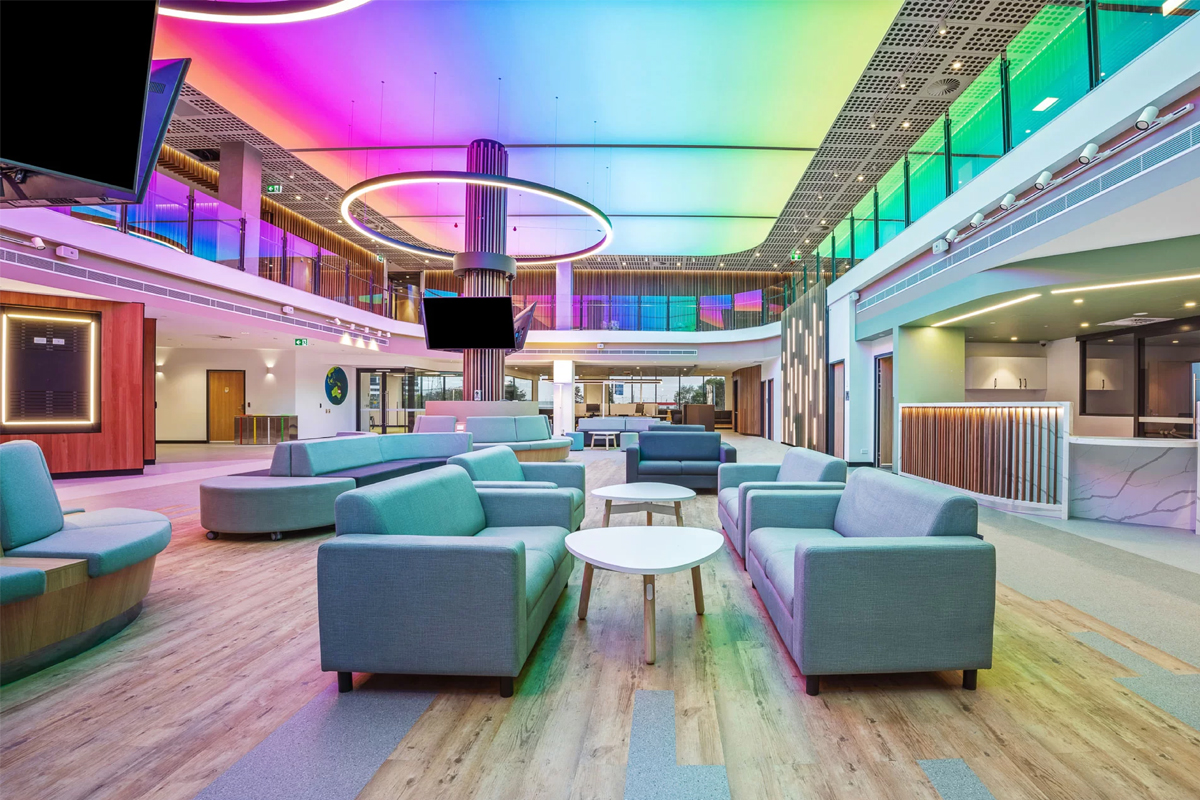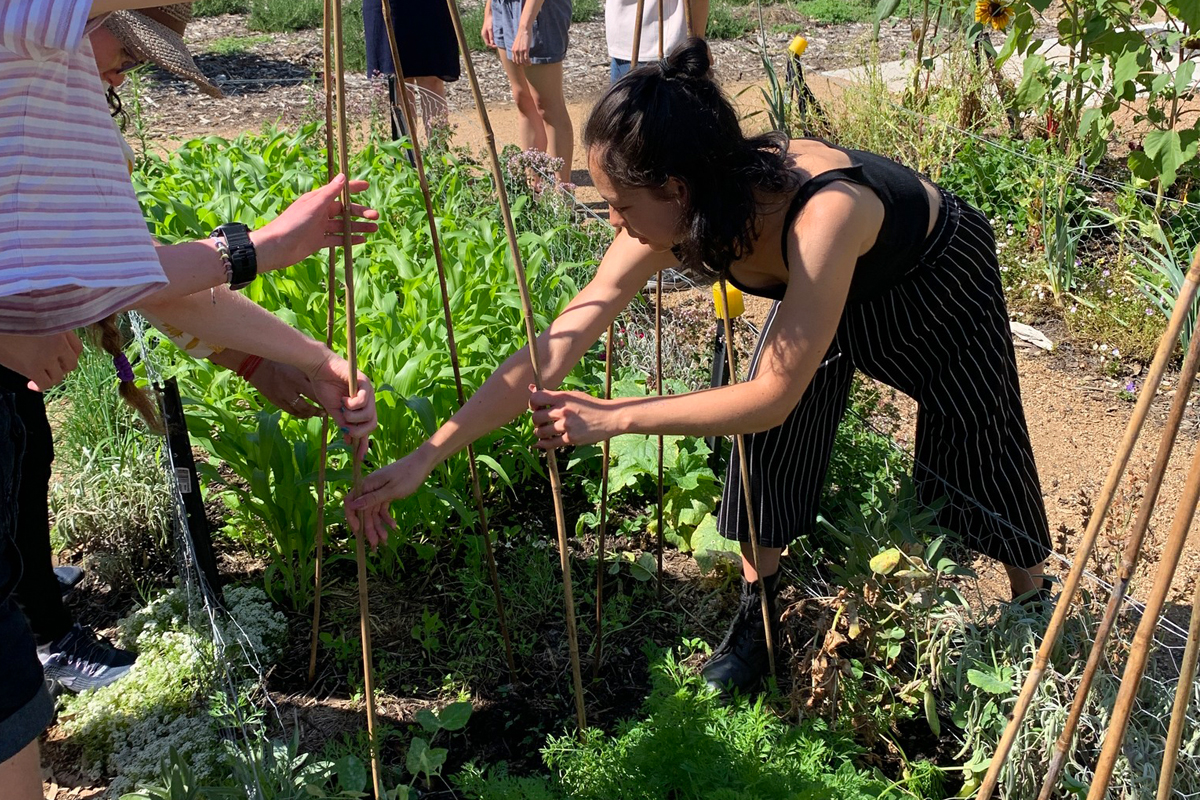Sustainability Champion – Student/Winners category
My passion for the environment is the core of all I do. I am committed to dedicating at least 400 hours to sustainability work this year, last year I contributed about 300 hours towards numerous sustainability causes – some hours were on a sustainability internship between the two academic years. I was simultaneously studying at the University of Otago for my future career in the sustainability field.
I strive to make a positive difference to my community, country and the world through targeted approaches with wide-ranging benefits, by doing hands-on mahi (work) with immediate and long-lasting effects myself, while also ensuring I have roles that can influence others to be more sustainable and bring like-minded people together so sustainability becomes more sustainable.
Academia
To increase my knowledge and create a socially, culturally, and environmentally beneficial career, I am studying the Bachelor of Arts undergraduate Human Geography programme, minoring in Environmental Management – to understand human impacts on the environment and how to resolve crises they cause. I have begun courses towards my next academic step, a Master of Sustainable Business, with aspirations to lead systemic change in industry, as I believe businesses hold great power and thus present great opportunities for bettering our planet and society.
Co-President of Students for Environmental Action 2022 and 2023
As elected co-president of Students for Environmental Action (S.E.A), I am leading the primary environmental activist group on the University’s main campus, in Dunedin. I have helped guide S.E.A to create a collaborative sustainability community on campus and in the community, to aid preventing competition among groups that unfortunately have to compete for the same funding and to create greater impact. SEA’s positive community awareness and engagement is exemplified through the numerous initiatives and activities we run and promote, one of which I initiated, the biannual Clothes Swap. This event reduces demand for fast fashion while minimising textile waste going to landfill, further bringing the student community together to create positive change collectively. This has become one of S.E.A’s most popular events and is relatively easy to organise. My leadership style is to lead from behind by delegating, motivating, and ‘modelling’ to my peers. I support and walk alongside my team to ensure equality and fairness. Both Nelson Mandela and Barack Obama demonstrate this style of leadership and I aspire to it. My commitment to S.E.A work added up to 82 hours last year and will be about the same this year.
Sustainability Neighbourhood 2022 and 2023
I successfully applied to Toitū te Taiao – Sustainability Office to be a resident of our University’s Sustainability Neighbourhood in 2022, living in a community of flats for the academic year. Residents have many opportunities to learn, through:
- Regular education at hui’s (meetings) with sustainability guest speakers
- The neighbourhood facilities, including a vast vegetable garden, beehives, composting, worm farms and recycling
- Living with other sustainably minded people, sharing knowledge, and building one another up to better make a difference.
When students flow through the Neighbourhood, they share their experiences with other university friends, and take their sustainable skills with them when they finish university.
I was inspired to suggest the Sustainability Office have a dedicated Tētēkura – Student Lead for the Sustainability Neighbourhood for peer-to-peer engagement then filled the inaugural role in 2023. The Māori word Tētēkura translates as a fern unfurling, demonstrating new growth in the sustainability domain. As a Tētēkura, I predominantly guide and lead the neighbourhood, but am also involved with sustainability promotion, education, and connecting efforts across the University. Tētēkura work is around eight hours a week.
Sustainability internship and Pūhau ana te rā 2022-23
The Sustainability Office chose me to do a student internship funded by Te Whatu Ora/Health New Zealand during the break between the 2022-2023 academic years. I researched mitigating and minimising Dunedin Hospital’s food waste, for environmental, social, and economic well-being. This research is transferable across all of Te Whatu Ora and beyond.
The Sustainability Office created a journal called Pūhau ana te rā to capture and share students’ and academic’s sustainability research. My research was published in the 2022-23 edition. I am very proud of my work towards this impactful sustainability cause.
Student Leadership Award 2022-2023
I am completing a two-year Student Leadership Award sponsored by Canon and designed to encourage leadership with a purpose, entailing 170 hours of leadership and sustainability volunteering. So far, I have volunteered at:
- The public reserve and historic site Quarantine Island (weeding, carpeting the house, and tree planting)
- Stitch Kitchen (a community sewing room committed to upcycling and reducing textiles going to landfill)
- UniCrew (tree planting)
- Riding for the Disabled
- As well as my contribution to SEA
I finish the award this year but feel I have already gained so much knowledge and experience while helping with positive change.
There’s more
I chose to be the Student Representative for some papers that include sustainability to show social sustainability by giving feedback on behalf of my peers to enrich the courses and provide better education for subsequent students. In 2023 I was class rep for ‘Engaging with People and Place: Doing Geographical Research,’ in 2021 I was class rep for ‘Urban Geography’ and ‘Transformations in Developing Countries’ and in 2020 for my ‘Human Geography’ paper. Each paper involved about four hours’ work a semester.
In spare time on my family’s regenerative deer farm during academic breaks, I propagate native trees for riparian planting and shelterbelts – finding the seedlings on our farm. I also run my own free-range egg business, feeding the hens with household scraps local grains and grass.
I have applied successfully for opportunities because of my success with previous opportunities. These have included:
- Being heavily involved in organising pop-up exhibition at the University of Otago for International Day of Awareness for Food Loss and Waste in 2021. Our day-long exhibition visually demonstrated the economic, social, and environmental cost of food loss and waste to the main campus students, staff, and visitors.
- Volunteering in Ghana, Africa, for six months in 2019, where I was a teacher and an assistant nurse, spending three months in each role. I learnt life skills and mindsets which support me in everything I do today and inspired me to be on the path I am on today – seeing environmental tragedies and hearing about them first-hand spurred my passion for change and action which had been brewing from a young age.
- Being awarded a scholarship from Untouched World to spend a week on Blumine Island, New Zealand, to attend a Leadership Programme in 2018 – another pivotal experience that taught me invaluable skills for becoming a leader and change maker.
- Being chosen to represent my primary school at an event releasing a Kākāpō – a critically endangered parrot endemic to New Zealand.
- Raising funds for Gareth Morgan’s ‘Million-Dollar Mouse Project,’ aimed at eradicating mice from Antipodes Island.
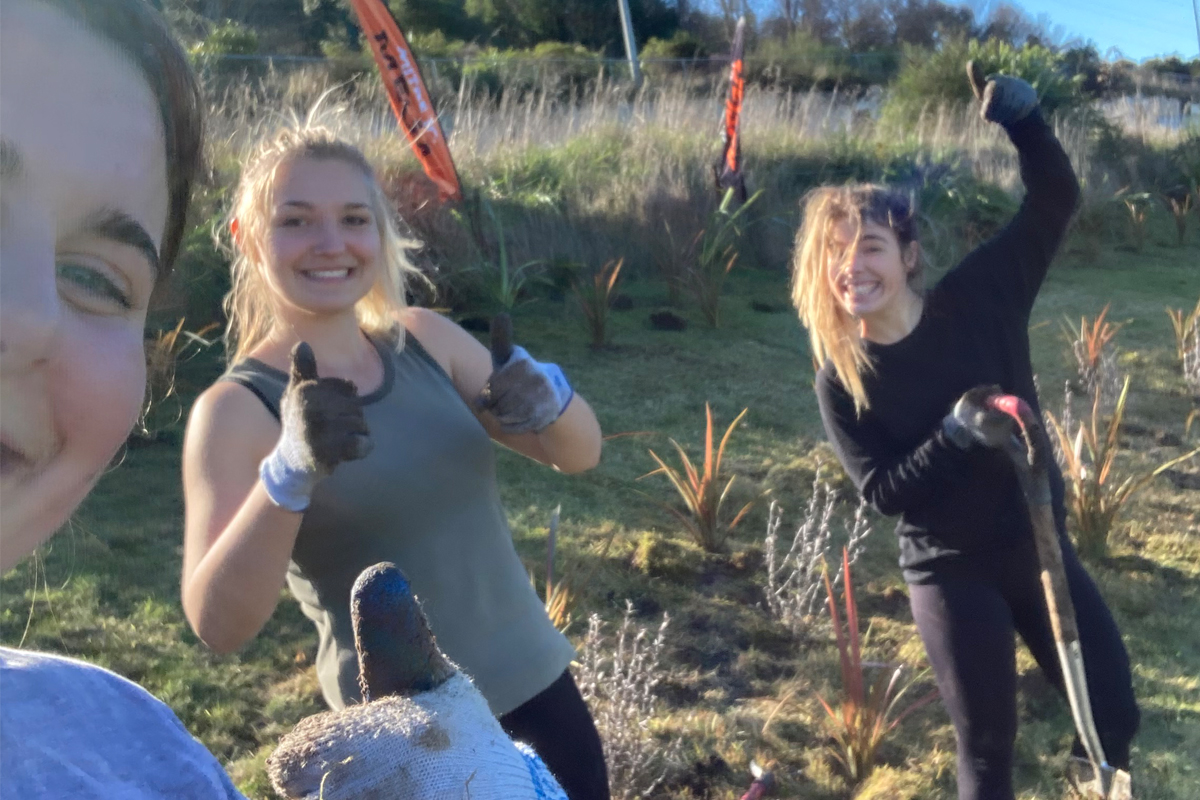
Impact and benefits
Events I have managed for Students for Environmental Action (S.E.A) have had environmental and social benefits:
- I have guided this collective of passionate students to start collaborating extensively with other like-minded groups, on campus and in the community, creating beneficial relationships and greater impact – the events have included inter-club environmental movie-nights, potlucks and Earth Day walks.
- I initiated the biannual Clothes Swap, one of S.E.A’s most popular events, to reduce demand for fast fashion and reduce textile waste going to landfill, while bringing the student community together to create positive change collectively.
- Trash-walks (to clean our streets and prevent rubbish from getting to the ocean)
- Documentary nights (informing and encouraging students as a club)
- Weekly Garden Bees (to teach skills and connect students to Papatūānuku – Mother Earth at our very own student garden).By leading S.E.A, I aim to motivate and guide a group of students who advocate for climate action and sustainable change, while highlighting creative approaches.
My role as a Tētēkura – Student Lead has connected like-minded people to a community through the Sustainability Neighbourhood. My work aims to empower and enable students to learn and showcase sustainable living. This role highlights the importance and value of peer-to-peer engagement in strategic change as the neighbourhood continues to grow this wisdom as residents move across Dunedin and the world. I also helped with the events in Te Oraka (the University of Otago’s Sustainability Hub), selling second-hand clothes, appliances, and furniture. I also assisted at Te Oraka’s Day and Night Markets, which show case small local businesses and bring together both the student community and staff.
My internship research suggested how Dunedin Hospital could reduce its food waste by half, in line with Sustainable Development Goal 12.3, to halve per capita global food waste at the retail and consumer levels by 2030. My research discovered the hospital’s annual total food waste is 35.4 tonnes, which equates to 21.2 tonnes of CO2 equivalent being released each year, and so my research also aimed to reduce that greenhouse gas emission profile. The food waste currently goes to landfill but could reduce both methane levels and food insecurity.
Leadership and engagement
I idealise figures like Greta Thunberg and David Attenborough for their extraordinary efforts towards climate action and see their ability to activate a movement that drives change at an incredible scale. These figures also exist on a local scale, and I aim to be that person. It is easy to forget the value of a familiar face who continues to drive local change by sharing their time and energy to create meaningful impact.
I have committed a large amount of my time and energy to doing hands-on work for immediate and long-term impact while also guiding others towards being more sustainable in their lives and bringing like-minded people together so sustainability becomes more sustainable. I have simultaneously initiated new sustainability approaches (a role and event) that which should have ongoing benefits (see above).
One of my aims is to maintain trustworthy relationships that build a network of collaborations and communities by wearing many different hats – I believe I am well down that path in Dunedin.
Wider societal impact
Through my application, I want to encourage people to be the Greta Thunberg and David Attenborough of their home, flat, street, neighbourhood, city, region, or country because we can all be agents of sustainable change.
The work I do benefits the world and the country, because:
- The students we educate about sustainability go out into the world and around the country
- The trees I planted sequester carbon
- The research I did on hospital waste could benefit all hospitals nationwide and with similar systems
- Relationships I have guided S.E.A to create have created a sustainability community in Dunedin, to reduce competition and create greater impact through socially and environmentally beneficial activities
- The role I initiated has instigated peer-to-peer support for our Sustainability Neighbourhood – student lead for the neighbourhood
- A clothes swap event I initiated not only reduces waste but has created S.E.A’s most popular event so is a marketing tool into the future for sustainability
- Ensuring S.E.A has leadership and continues to be an advocate for change, providing like-minded people in a safe space and ensuring student voices can be heard both inside and outside the University
- The work I do on the ground volunteering models the way for others while also giving me valuable skills and knowledge
- The way I live, work and lead is by enthusiastically encouraging those around me while modelling my own enthusiastic engagement with sustainability, and I believe this positivity has a ripple effect on people around me.
My impact on the University, wider Dunedin and the world is to spread my knowledge, energy, and time to better both our environment and communities, one conversation, event, and collaboration at a time. While this is my situation now, I believe I will continue to fight the good fight and maintain this passion towards bettering our world beyond University.
Related finalists
Climate Action/Winners
Climate Action/Winners
Benefitting Society/Winners
Benefitting Society/Winners
Sustainability Champion – Student/Winners
Sustainability Champion – Student/Winners
Creating Impact/Winners
Creating Impact/Winners
Sustainability Champion – Student/Winners
Sustainability Champion – Student/Winners
Leading the Circular Economy/Winners
Leading the Circular Economy/Winners
Creating Impact/Winners
Creating Impact/Winners
Creating Impact/Winners
Creating Impact/Winners
Diversity, Equity & Inclusion in Sustainability/Winners
Diversity, Equity & Inclusion in Sustainability/Winners
Sustainability Champion – Student
Sustainability Champion – Student
Next Generation Learning & Skills/Winners
Next Generation Learning & Skills/Winners
Sustainability Institution of the Year/Winners
Sustainability Institution of the Year/Winners
Sustainability Champion – Student
Sustainability Champion – Student
Leading the Circular Economy/Winners
Leading the Circular Economy/Winners
Next Generation Learning & Skills/Winners
Next Generation Learning & Skills/Winners
Sustainability Champion – Staff/Winners
Sustainability Champion – Staff/Winners
Next Generation Learning & Skills/Winners
Next Generation Learning & Skills/Winners
Sustainability Champion – Student
Sustainability Champion – Student
Sustainability Champion – Staff/Winners
Sustainability Champion – Staff/Winners
Sustainability Champion – Staff/Winners
Sustainability Champion – Staff/Winners
Student Engagement/Winners
Student Engagement/Winners
Other finalists
Climate Action
Climate Action
Sustainability Champion – Staff/Winners
Sustainability Champion – Staff/Winners
Student Engagement
Student Engagement
Creating Impact
Creating Impact
Sustainability Champion – Staff/Winners
Sustainability Champion – Staff/Winners
Sustainability Champion – Student
Sustainability Champion – Student
My passion for the environment is the core of all I do. I am committed to dedicating at least 400 hours to sustainability work this year, last year I contributed about 300 hours towards numerous sustainability causes – some hours were on a sustainability internship between the two academic years. I was simultaneously studying at the University of Otago for my future career in the sustainability field.
I strive to make a positive difference to my community, country and the world through targeted approaches with wide-ranging benefits, by doing hands-on mahi (work) with immediate and long-lasting effects myself, while also ensuring I have roles that can influence others to be more sustainable and bring like-minded people together so sustainability becomes more sustainable.
Academia
To increase my knowledge and create a socially, culturally, and environmentally beneficial career, I am studying the Bachelor of Arts undergraduate Human Geography programme, minoring in Environmental Management – to understand human impacts on the environment and how to resolve crises they cause. I have begun courses towards my next academic step, a Master of Sustainable Business, with aspirations to lead systemic change in industry, as I believe businesses hold great power and thus present great opportunities for bettering our planet and society.
Co-President of Students for Environmental Action 2022 and 2023
As elected co-president of Students for Environmental Action (S.E.A), I am leading the primary environmental activist group on the University’s main campus, in Dunedin. I have helped guide S.E.A to create a collaborative sustainability community on campus and in the community, to aid preventing competition among groups that unfortunately have to compete for the same funding and to create greater impact. SEA’s positive community awareness and engagement is exemplified through the numerous initiatives and activities we run and promote, one of which I initiated, the biannual Clothes Swap. This event reduces demand for fast fashion while minimising textile waste going to landfill, further bringing the student community together to create positive change collectively. This has become one of S.E.A’s most popular events and is relatively easy to organise. My leadership style is to lead from behind by delegating, motivating, and ‘modelling’ to my peers. I support and walk alongside my team to ensure equality and fairness. Both Nelson Mandela and Barack Obama demonstrate this style of leadership and I aspire to it. My commitment to S.E.A work added up to 82 hours last year and will be about the same this year.
Sustainability Neighbourhood 2022 and 2023
I successfully applied to Toitū te Taiao – Sustainability Office to be a resident of our University’s Sustainability Neighbourhood in 2022, living in a community of flats for the academic year. Residents have many opportunities to learn, through:
- Regular education at hui’s (meetings) with sustainability guest speakers
- The neighbourhood facilities, including a vast vegetable garden, beehives, composting, worm farms and recycling
- Living with other sustainably minded people, sharing knowledge, and building one another up to better make a difference.
When students flow through the Neighbourhood, they share their experiences with other university friends, and take their sustainable skills with them when they finish university.
I was inspired to suggest the Sustainability Office have a dedicated Tētēkura – Student Lead for the Sustainability Neighbourhood for peer-to-peer engagement then filled the inaugural role in 2023. The Māori word Tētēkura translates as a fern unfurling, demonstrating new growth in the sustainability domain. As a Tētēkura, I predominantly guide and lead the neighbourhood, but am also involved with sustainability promotion, education, and connecting efforts across the University. Tētēkura work is around eight hours a week.
Sustainability internship and Pūhau ana te rā 2022-23
The Sustainability Office chose me to do a student internship funded by Te Whatu Ora/Health New Zealand during the break between the 2022-2023 academic years. I researched mitigating and minimising Dunedin Hospital’s food waste, for environmental, social, and economic well-being. This research is transferable across all of Te Whatu Ora and beyond.
The Sustainability Office created a journal called Pūhau ana te rā to capture and share students’ and academic’s sustainability research. My research was published in the 2022-23 edition. I am very proud of my work towards this impactful sustainability cause.
Student Leadership Award 2022-2023
I am completing a two-year Student Leadership Award sponsored by Canon and designed to encourage leadership with a purpose, entailing 170 hours of leadership and sustainability volunteering. So far, I have volunteered at:
- The public reserve and historic site Quarantine Island (weeding, carpeting the house, and tree planting)
- Stitch Kitchen (a community sewing room committed to upcycling and reducing textiles going to landfill)
- UniCrew (tree planting)
- Riding for the Disabled
- As well as my contribution to SEA
I finish the award this year but feel I have already gained so much knowledge and experience while helping with positive change.
There’s more
I chose to be the Student Representative for some papers that include sustainability to show social sustainability by giving feedback on behalf of my peers to enrich the courses and provide better education for subsequent students. In 2023 I was class rep for ‘Engaging with People and Place: Doing Geographical Research,’ in 2021 I was class rep for ‘Urban Geography’ and ‘Transformations in Developing Countries’ and in 2020 for my ‘Human Geography’ paper. Each paper involved about four hours’ work a semester.
In spare time on my family’s regenerative deer farm during academic breaks, I propagate native trees for riparian planting and shelterbelts – finding the seedlings on our farm. I also run my own free-range egg business, feeding the hens with household scraps local grains and grass.
I have applied successfully for opportunities because of my success with previous opportunities. These have included:
- Being heavily involved in organising pop-up exhibition at the University of Otago for International Day of Awareness for Food Loss and Waste in 2021. Our day-long exhibition visually demonstrated the economic, social, and environmental cost of food loss and waste to the main campus students, staff, and visitors.
- Volunteering in Ghana, Africa, for six months in 2019, where I was a teacher and an assistant nurse, spending three months in each role. I learnt life skills and mindsets which support me in everything I do today and inspired me to be on the path I am on today – seeing environmental tragedies and hearing about them first-hand spurred my passion for change and action which had been brewing from a young age.
- Being awarded a scholarship from Untouched World to spend a week on Blumine Island, New Zealand, to attend a Leadership Programme in 2018 – another pivotal experience that taught me invaluable skills for becoming a leader and change maker.
- Being chosen to represent my primary school at an event releasing a Kākāpō – a critically endangered parrot endemic to New Zealand.
- Raising funds for Gareth Morgan’s ‘Million-Dollar Mouse Project,’ aimed at eradicating mice from Antipodes Island.

Impact and benefits
Events I have managed for Students for Environmental Action (S.E.A) have had environmental and social benefits:
- I have guided this collective of passionate students to start collaborating extensively with other like-minded groups, on campus and in the community, creating beneficial relationships and greater impact – the events have included inter-club environmental movie-nights, potlucks and Earth Day walks.
- I initiated the biannual Clothes Swap, one of S.E.A’s most popular events, to reduce demand for fast fashion and reduce textile waste going to landfill, while bringing the student community together to create positive change collectively.
- Trash-walks (to clean our streets and prevent rubbish from getting to the ocean)
- Documentary nights (informing and encouraging students as a club)
- Weekly Garden Bees (to teach skills and connect students to Papatūānuku – Mother Earth at our very own student garden).By leading S.E.A, I aim to motivate and guide a group of students who advocate for climate action and sustainable change, while highlighting creative approaches.
My role as a Tētēkura – Student Lead has connected like-minded people to a community through the Sustainability Neighbourhood. My work aims to empower and enable students to learn and showcase sustainable living. This role highlights the importance and value of peer-to-peer engagement in strategic change as the neighbourhood continues to grow this wisdom as residents move across Dunedin and the world. I also helped with the events in Te Oraka (the University of Otago’s Sustainability Hub), selling second-hand clothes, appliances, and furniture. I also assisted at Te Oraka’s Day and Night Markets, which show case small local businesses and bring together both the student community and staff.
My internship research suggested how Dunedin Hospital could reduce its food waste by half, in line with Sustainable Development Goal 12.3, to halve per capita global food waste at the retail and consumer levels by 2030. My research discovered the hospital’s annual total food waste is 35.4 tonnes, which equates to 21.2 tonnes of CO2 equivalent being released each year, and so my research also aimed to reduce that greenhouse gas emission profile. The food waste currently goes to landfill but could reduce both methane levels and food insecurity.
Leadership and engagement
I idealise figures like Greta Thunberg and David Attenborough for their extraordinary efforts towards climate action and see their ability to activate a movement that drives change at an incredible scale. These figures also exist on a local scale, and I aim to be that person. It is easy to forget the value of a familiar face who continues to drive local change by sharing their time and energy to create meaningful impact.
I have committed a large amount of my time and energy to doing hands-on work for immediate and long-term impact while also guiding others towards being more sustainable in their lives and bringing like-minded people together so sustainability becomes more sustainable. I have simultaneously initiated new sustainability approaches (a role and event) that which should have ongoing benefits (see above).
One of my aims is to maintain trustworthy relationships that build a network of collaborations and communities by wearing many different hats – I believe I am well down that path in Dunedin.
Wider societal impact
Through my application, I want to encourage people to be the Greta Thunberg and David Attenborough of their home, flat, street, neighbourhood, city, region, or country because we can all be agents of sustainable change.
The work I do benefits the world and the country, because:
- The students we educate about sustainability go out into the world and around the country
- The trees I planted sequester carbon
- The research I did on hospital waste could benefit all hospitals nationwide and with similar systems
- Relationships I have guided S.E.A to create have created a sustainability community in Dunedin, to reduce competition and create greater impact through socially and environmentally beneficial activities
- The role I initiated has instigated peer-to-peer support for our Sustainability Neighbourhood – student lead for the neighbourhood
- A clothes swap event I initiated not only reduces waste but has created S.E.A’s most popular event so is a marketing tool into the future for sustainability
- Ensuring S.E.A has leadership and continues to be an advocate for change, providing like-minded people in a safe space and ensuring student voices can be heard both inside and outside the University
- The work I do on the ground volunteering models the way for others while also giving me valuable skills and knowledge
- The way I live, work and lead is by enthusiastically encouraging those around me while modelling my own enthusiastic engagement with sustainability, and I believe this positivity has a ripple effect on people around me.
My impact on the University, wider Dunedin and the world is to spread my knowledge, energy, and time to better both our environment and communities, one conversation, event, and collaboration at a time. While this is my situation now, I believe I will continue to fight the good fight and maintain this passion towards bettering our world beyond University.
Related finalists
Student Engagement/Winners
Student Engagement/Winners
Sustainability Champion – Staff/Winners
Sustainability Champion – Staff/Winners
Sustainability Champion – Staff/Winners
Sustainability Champion – Staff/Winners
Other finalists
Climate Action
Climate Action
Sustainability Champion – Staff/Winners
Sustainability Champion – Staff/Winners
Student Engagement
Student Engagement

